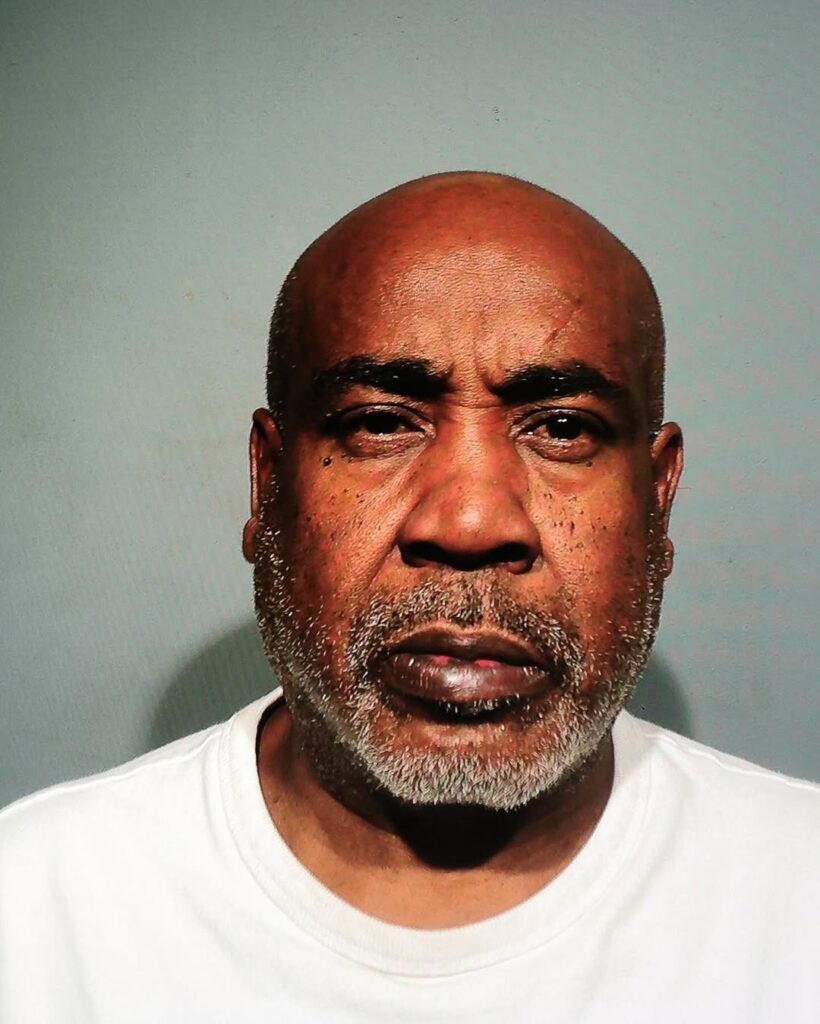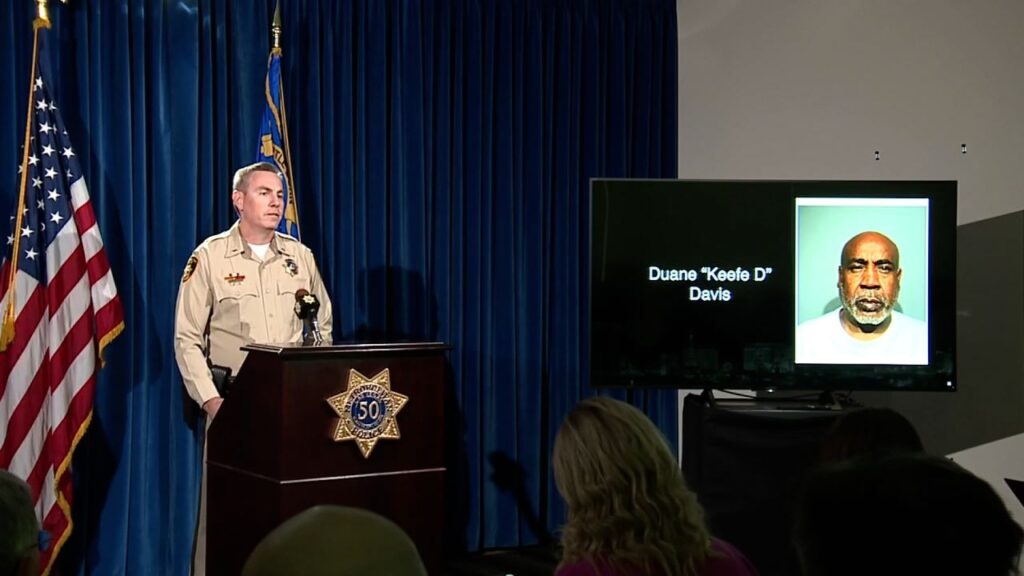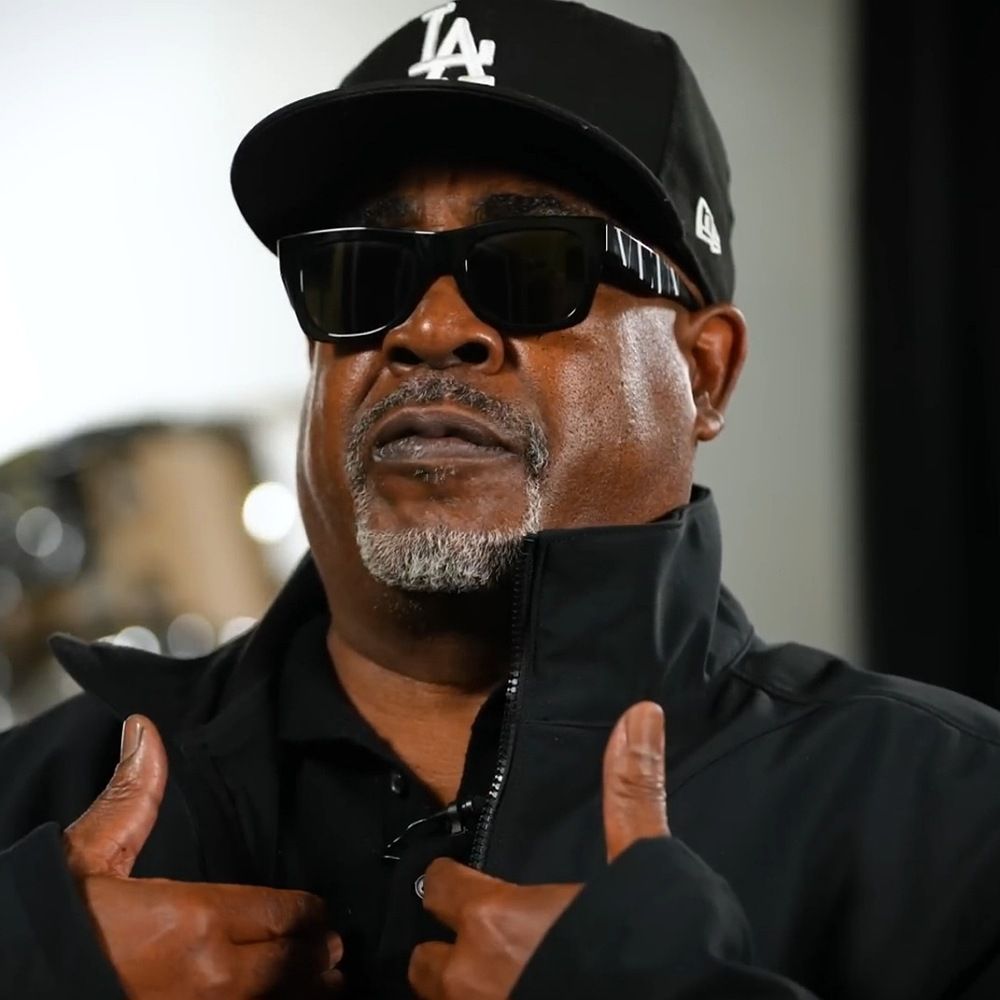Early Life and Background

Where Keffe D Grew Up
Duane “Keefe D” Davis was born in 1963 in Compton, California. Compton is a city near Los Angeles known for its strong community and long history of gang violence. During the 1970s and 1980s, jobs were hard to find, and many families struggled to make a living. As crime grew, street gangs became a big part of life for many young people.
At the same time, hip-hop music was growing fast in Los Angeles. Many artists used their songs to talk about police issues, poverty, and street life. Davis grew up surrounded by both music and violence. These early years shaped who he became later.
Family and Childhood in Compton
Not much is known about Davis’s family. He has not shared many details about his parents or childhood in interviews or books. People who lived in Compton during that time say that life there was tough for most kids. Violence, drugs, and police activity were common.
Like many teens in the area, Davis looked for safety and belonging. For some, joining a gang was the only way to protect themselves and earn respect. Growing up in a place with few chances to succeed, Davis learned to survive by being strong and loyal to the people around him.
Early Ties to Street Life
When Davis was a teenager, he started spending time with older boys who were members of the South Side Compton Crips. This group was part of the larger Crips network in Los Angeles. The Crips were often in conflict with another group called the Bloods.
As Davis got older, he became more involved in gang life. People in his neighborhood saw him as confident and well-connected. He dressed well, drove nice cars, and gained respect in the streets. These ties gave him power but also brought danger. Gang life opened doors to money and influence, but it also put him close to violence and police attention.
Life Before the Arrest
Role in the South Side Compton Crips
By the late 1980s, Davis had become a known figure in the South Side Compton Crips. The group had control over parts of Compton and worked with other Crip groups in nearby cities. Police later said Davis held a position of influence, meaning other members listened to him and followed his lead.
During those years, Los Angeles police were tracking several Crip members for drug and weapon crimes. Some reports mentioned Davis, though not all cases led to formal charges. Retired officers later said he was someone who knew how to manage street operations quietly. He was respected but not flashy, and that helped him avoid major trouble for a while.
Early Conflicts With the Law
Court and police records from that time show that Davis was questioned and detained more than once. Some of these cases involved drug-related activity. He was part of a generation caught in the middle of the “War on Drugs,” when police increased raids and arrests across Los Angeles.
Many young men in Compton faced the same cycle: no jobs, constant police presence, and few safe options. Davis often found himself between the law and the street world he lived in. His ability to move in both circles helped him survive but kept him close to danger.
How He Became Linked to the Hip-Hop Scene
In the early 1990s, hip-hop and gang culture were closely connected in Los Angeles. Many record labels, artists, and producers hired local gang members for protection or support. Street credibility mattered in the music business, and people like Davis moved between both worlds.
Davis’s cousin, Orlando Anderson, was also part of the South Side Compton Crips. Their group sometimes worked with people linked to major record labels, including Death Row Records. This label represented famous artists like Tupac Shakur and was led by Suge Knight, who also grew up around Los Angeles gangs.
These connections meant that Davis and his circle were never far from the hip-hop industry. He was not a musician or producer, but he knew the people who were. His ties to Orlando Anderson and the Crips would later pull him into one of the most famous cases in music history: the killing of Tupac Shakur.
The Tupac Shakur Case

What Happened in Las Vegas in 1996
On September, 1996, Tupac Shakur attended a Mike Tyson boxing match at the MGM Grand in Las Vegas. After the fight, a confrontation took place between Shakur’s group and Orlando Anderson in the hotel lobby. Surveillance footage later confirmed the altercation.
Later that night, while driving near the Las Vegas Strip, Tupac was shot multiple times while sitting in a car with Suge Knight. He died six days later at the University Medical Center of Southern Nevada. The case went unsolved for decades, becoming one of the most discussed unsolved murders in American music history.
Rivalries Between Death Row and Bad Boy Records
The murder happened during a time of strong rivalry between Tupac’s label, Death Row Records, and Sean “Diddy” Combs’s Bad Boy Records, which represented The Notorious B.I.G. Both labels were symbols of the West Coast–East Coast feud that divided fans, artists, and executives across the U.S.
Keffe D’s Involvement and His Own Claims
In interviews and his later book, Davis claimed he was inside the white Cadillac that pulled up beside Tupac’s BMW on the night of the shooting. He identified himself as one of four people in the car and said his nephew, Orlando Anderson, was in the back seat. Davis stated that he handed the gun to someone else in the car but denied firing it himself. His account matched some of what detectives had suspected for years, but it remained unproven in court.
Confessions and Public Statements
His Words in the 2018 BET Documentary
In 2018, Davis appeared in the BET documentary Death Row Chronicles. During the interview, he described the events of the night Tupac was killed, claiming he was present when the shooting happened. He also admitted to knowing who pulled the trigger but refused to name the shooter “for the code of the streets.” His openness caught the attention of police, who had long viewed him as a key witness and possibly a suspect.
Details Shared in His Book Compton Street Legend
In 2019, Davis released Compton Street Legend, a memoir where he described his experiences in gang life and the events leading up to Tupac’s murder. He again discussed his role but maintained that he did not personally fire the shots. The book gained attention because it repeated many of the claims he had made publicly, effectively confirming his earlier statements on record.
How Police and the Public Reacted
Investigators reviewed his interviews and writings closely. Media outlets like CNN, CBS News, and USA Today reported that police treated his statements as significant new evidence. Many fans and journalists questioned why Davis chose to talk about the murder so openly after years of silence. Some believed he was seeking attention or money from interviews and book sales, while others thought he wanted to clear his conscience.
The 2023 Arrest and Legal Case

How Investigators Reopened the Case
In July 2023, police in Nevada carried out a search at a home in Henderson, just outside Las Vegas. The home was linked to Davis through his wife. Reports from major media said investigators found computers, phones, and writings tied to Tupac’s murder. These discoveries, combined with Davis’s own public statements, led to new charges.
Details of the Arrest and Charges
In September 2023, Las Vegas police arrested Davis. He was charged with one count of murder with the use of a deadly weapon. Prosecutors said Davis was the “shot-caller,” meaning he planned and directed the attack, even if he didn’t personally fire the gun.
What Has Happened in Court So Far
Davis has pleaded not guilty. His court hearings have been delayed several times as his lawyers review the evidence. As of late 2025, he remains in custody in Nevada, awaiting trial. Journalists from the Las Vegas Review-Journal and USA Today continue to track the proceedings closely.
Keffe D Net Worth and Financial Life
His Estimated Net Worth in 2025
There are no verified financial records that show Keffe D’s exact net worth. Major outlets like CNN, CBS News, and USA Today have not reported any official figures. However, some smaller websites have published claims that his net worth might be between $500,000 and $1 million. These numbers are unverified and likely based on guesses rather than documented income or assets.
How Legal Costs and Jail Time Affected His Money
Since his arrest in 2023, Davis’s financial situation has likely worsened. Legal defense in a murder case can cost hundreds of thousands of dollars. Davis has not had any public income streams since being detained. The book Compton Street Legend was self-published, and no sales figures are available to show significant earnings.
What Is Known About His Assets and Income
There is no evidence that Davis owns major property, investments, or a steady business. Reports describe his lifestyle before arrest as modest. Based on verified public information, his current financial status is unclear but likely limited due to his ongoing legal case and time in custody.
Life After the Arrest
Where He Is Now
Davis remains held in a Clark County jail facility in Las Vegas as he waits for trial. The court has not yet set a final date. He has made a few public court appearances, often shown in media photos wearing a detention jumpsuit.
How the Case Has Affected His Family and Friends
There has been little public discussion from his family. News outlets report that his relatives have avoided interviews since his arrest. Friends from his earlier life in Compton have also stayed quiet, possibly to avoid further attention from the media or police.
Media Coverage and Public Attention
Keffe D’s arrest became one of the most widely covered hip-hop stories of 2023. It brought fresh attention to a case that had remained cold for nearly 30 years. News outlets around the world, from American networks to international platforms, reported on the arrest as a possible breakthrough in the search for justice for Tupac Shakur.
Legacy and Cultural Impact
How His Story Changed Hip-Hop History
Keffe D’s confessions reshaped how people view the 1996 murder. His public admissions brought long-standing rumors into clearer focus and gave investigators new reasons to revisit the case. The hip-hop community has since debated whether his story should be seen as closure or as another unsolved chapter in a history filled with tragedy.
What People Still Debate About the Tupac Case
Even after Davis’s arrest, many questions remain unanswered. Fans and journalists still argue over who actually pulled the trigger, whether others were involved, and why the case took nearly three decades to move forward. The mystery continues to fuel documentaries, podcasts, and online discussions about the darker side of fame and rivalry in 1990s rap culture.
Final Thoughts
What Keffe D’s Story Tells Us About Choices and Consequences
Duane “Keefe D” Davis’s story is a cautionary one about the lasting impact of choices made in youth. From his early life in Compton’s gang culture to his role in one of music’s most infamous murders, his life reflects the dangers of loyalty, violence, and fame colliding. Whether found guilty or not, Davis’s name will always be tied to the events that ended Tupac Shakur’s life and changed hip-hop forever.

